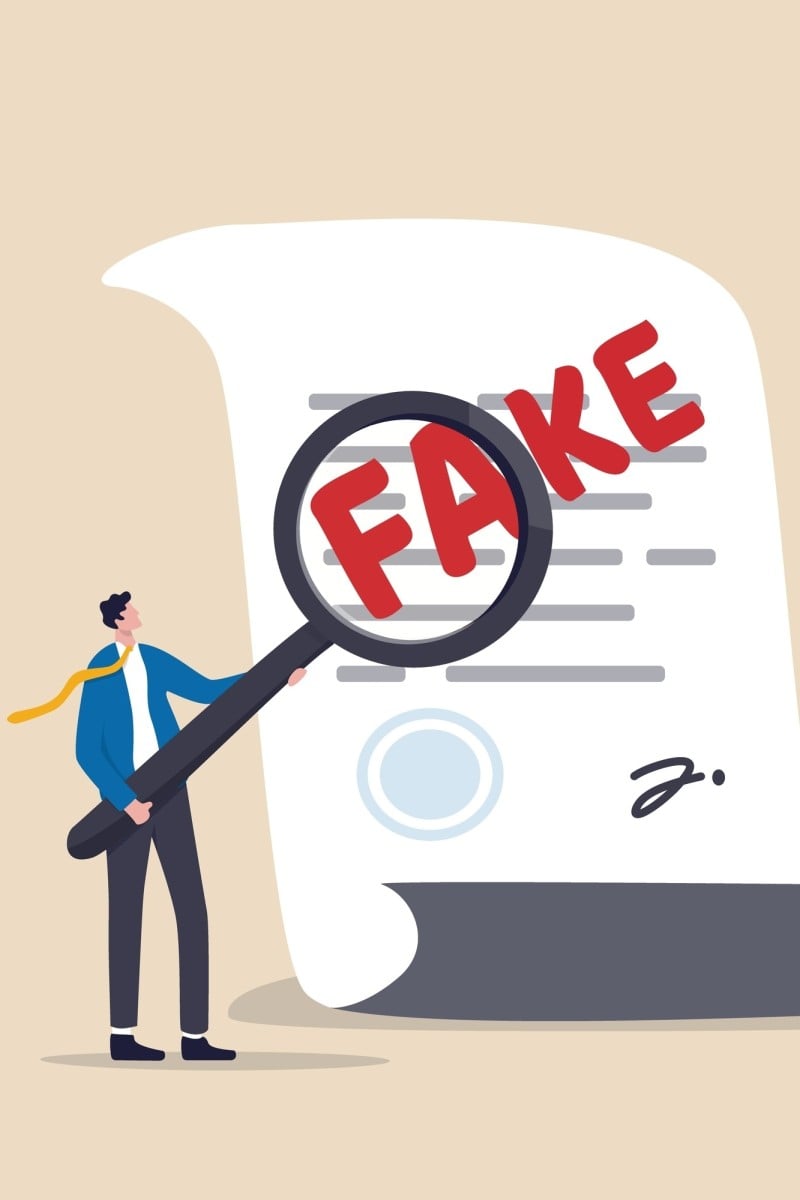
Spark Deep Dive: Hong Kong to crack down on fake documents for university admissions
Chief Executive hopes to promote the city as a hub for international students through new ‘Study in Hong Kong’ campaign.
 Hong Kong will investigate and punish people using fake qualifications to apply to university. Photo: Shutterstock
Hong Kong will investigate and punish people using fake qualifications to apply to university. Photo: ShutterstockDeep Dive delves into hot issues in Hong Kong and mainland China. Our easy-to-read articles provide context to grasp what’s happening, while our questions help you craft informed responses. Check sample answers at the end of the page.
Hong Kong’s leader has promised to work with mainland Chinese authorities in a new measure. He hopes to crack down on education consultants giving forged documents to people applying to local universities.
Chief Executive John Lee Ka-chiu said these bad practices hurt his administration’s policies. He hopes to strengthen Hong Kong as a global tertiary education hub.
Lee announced plans to launch a “Study in Hong Kong” campaign last month during his policy address. The brand seeks to promote the city as a centre for higher education.
“There are situations where intermediaries make [dishonest] attempts to make money,” Lee said before a weekly meeting of the government’s key decision-making Executive Council.
“If our law enforcement agencies know about these situations, they will definitely crack down and work with mainland agencies to tackle these illegal activities. But I believe that most of them are law-abiding.”
Lee said Hong Kong was an attractive place to study in terms of its education quality. He added this was especially true for students from the Middle East and other nations involved in the Belt and Road Initiative (BRI). The BRI is China’s plan to grow global trade.
Meanwhile, Hong Kong’s Chief Secretary Eric Chan Kwok-ki said the government would thoroughly investigate all applications submitted by suspicious educational agencies.
“Once we have sufficient evidence to prosecute and they have been found guilty, their academic qualifications will be revoked,” he said. “Due to the record, it could be very difficult for them to come to Hong Kong again, even for travelling.”
Chan said that while the number of cases reported to police remained low, they were all thoroughly investigated. The agencies involved would also be carefully checked.
Many of these education consultancy accounts advertise on the Chinese social media platform Xiaohongshu. Several claim they can guarantee enrolment into master’s programmes at HKU and other universities in Hong Kong.
Staff writers
Question prompts
1. Which of the following statements is false?
(1) Hong Kong hopes to become a hub for higher education.
(2) Chief Executive John Lee thinks most educational consultants are not honest.
(3) People who apply with fake credentials can still keep the qualifications they earn.
(4) Authorities thoroughly investigate reported cases of fake credentials.
A. (1), (2) only
B. (2), (3) only
C. (1), (3), (4) only
D. none of the above
2. Using the news, list TWO reasons why John Lee wants to combat the problem of fake qualifications.
3. According to Chan, what are TWO possible consequences of being caught using fake credentials?
Illustration
Question prompts
1. What do you see in the illustration, and what does it represent? How is this related to John Lee’s plans for education in Hong Kong?
2. Do you agree with Lee’s statement that Hong Kong is an attractive place to study? Explain using the news and your own knowledge.
Glossary
“Study in Hong Kong” campaign: a plan from the Hong Kong government to promote the city as a centre for higher education and attract overseas students. John Lee announced the plans in his recent policy address.
intermediaries: people or companies who act as a link between others. For example, a person applying for a visa may pay an intermediary to do the work for them.
Belt and Road Initiative: a strategy adopted by the Chinese government in 2013 to connect Asia with Africa and Europe via land and sea. The goal is to improve relationships and encourage regional integration.
Sample answers
News
1. B
2. John Lee wants to tackle the problem of fake qualifications because it hurts Hong Kong’s reputation as a place for high-quality higher education and harms his administration’s policies.
3. Two possible consequences of being caught using fake credentials include having one’s academic qualifications revoked and not being allowed to return to Hong Kong, even for travel.
Illustration
1. The illustration represents Hong Kong’s desire to turn the city into a destination for international students and a place known for higher education. This ties into John Lee’s “Study in Hong Kong” campaign, which seeks to promote the city to overseas students. Cracking down on fake qualifications will also help Hong Kong’s reputation as an academic hub.
2. I think Hong Kong is an attractive place to study because it has students and professors from all around the world. Pupils can have a rich and rewarding experience. They can learn from knowledgeable people and make friends with those from different backgrounds. (accept all reasonable answers)
